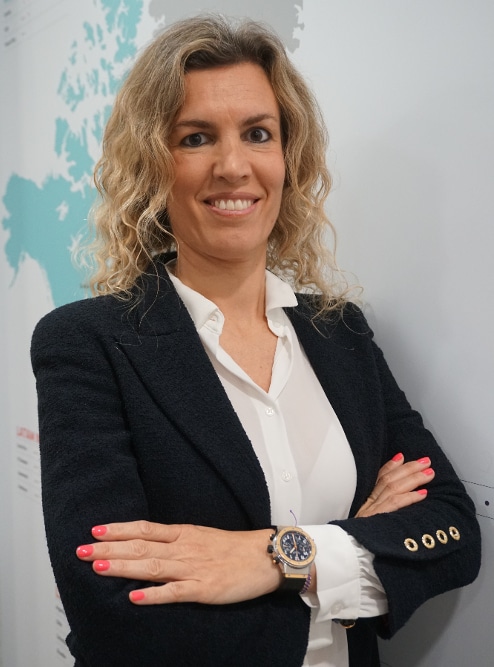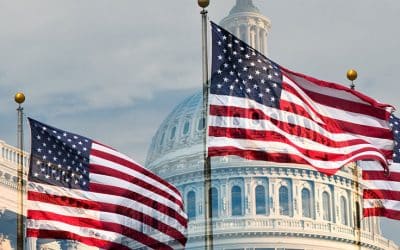Raquel Arteaga: “The figure of the risk director is key in the current context”

Redacción Mapfre
- You’ve only been at MAPFRE AM for a month. What’s your first impression? What do you make of your colleagues at the fund manager?
The MAPFRE AM team has welcomed me with open arms, making integration very easy. I’ve remarked so many times to my new colleagues that it already feels as if I’ve worked here for half my life, so that’s a great sign!
From the first moment I walked through the door, the closeness between the different teams and the ease of working transversally within MAPFRE AM were the two things that immediately struck me. The same goes for the interaction among the Corporate Areas that I’ve dealt with - Sustainability, Risk, Strategy etc.
- Tell us what motivated you to come here.
It was a difficult decision since I came over from one of the main asset managers at national level, but the project that MAPFRE AM offered me completely convinced me. Leading a team that was in the process of growth and where the brief was to continue advancing and stay aligned with the increasingly demanding guidelines of the regulator was a challenge that I couldn’t pass up. In addition, I knew that I’d be able to count on really experienced people here who could help me continue to improve, and that’s the way it’s turned out – the two people on my team, who have extensive experience within the MAPFRE Group – are really wonderful.
- What do you think sets MAPFRE AM apart from other competitors?
Well, it is the main independent fund manager, with around 40 billion euros under management. A clear difference with respect to the rest of the national managers, and which should be highlighted, is the large volume involved in managing the insurance portfolios of MAPFRE Group companies.
Likewise, the stake that MAPFRE has in La Financière Responsible (LFR) shows its clear commitment to responsible investment, and has provided us with an internal methodology, which has allowed us to launch two Article 8 funds (SFDR) that come with the French seal of approval, under the supervision of the Ministry of French Economy and Finance and which enables us to pass an independently conducted audit on an annual basis.
- MAPFRE AM has been focusing on investment with ESG criteria for a good few years. What does this commitment to these socially responsible assets mean for you?
The urgent need to channel capital flows toward more sustainable companies or toward those that are in the process of transition in order to achieve environmental objectives has caused regulators and governments alike to intensify and promote this type of investment. Having said that, there are other factors such as social ones, which also come under the umbrella of sustainable investment, and which are just as important as those I mentioned before. And let’s not forget the corporate governance pillar, which has made it possible to identify those companies with good governance, which have delivered greater stability and earnings over the long run.
MAPFRE AM has been applying ESG criteria for a number of years. As you know, we must bear in mind that MAPFRE's main shareholder is Fundación MAPFRE, so the social pillars on which the company is based are very strong and social responsibility is embedded deep within the DNA of the business.
All of the foregoing doesn’t discount the fact that the last few years have been very intense, and that many complex regulatory changes have come into play in a very short time. This has led to an adaptation on our part, a change in language, training in sustainability, the transversal involvement of all management departments, as well as a significant investment in technology.
From my point of view, it’s essential, and I believe that we’re in a privileged position as a fund manager to be able to influence the action taken by the companies we invest in through our involvement in voting or active dialog with those companies we want to influence.

- What exactly does the work of a risk director at a fund manager entail?
The figure of the risk director is key in the current environment. The different crises that we’ve been through have led to the need for solid risk teams that can help identify, control and manage the risks facing the asset management business.
The risk director must act with absolute independence from the rest of the teams within the fund manager, mainly from the investment department, in order to avoid conflicts of interest. Their job is to inform the CEO and the governing bodies of the company (Risk and Compliance Committee, Board of Directors etc.) of any aspect that they consider essential in order to comply with the guidelines, policies and procedures set down.
Last but not least, we must also bear in mind that risk management has to safeguard the interests of our clients, continuously monitoring financial and extra-financial risks and supporting the management of same.
- Tell us some more about "managing risks" in an environment as complicated as the one we’re in right now?
It’s not something new, it’s a challenge that we’ve been dealing with over time with previous crises (the dot com bust, subprime mortgages, Lehman Brothers etc.), but I think that little by little, the processes of monitoring and control in the fund management companies have improved and become more sophisticated, with the aim of ensuring early identification of the potential risks in the portfolios.
The last few months have been particularly turbulent and very diverse situations have become intertwined, producing a global negative effect. As such, the most significant risks for our products have come from the conflict in Ukraine, the rise in energy prices (gas and oil etc.), the rise in interest rates, the relaxation of central bank policy and high inflation, which is really conditioning the risk analysis of the portfolios we manage.
- Technological development and digitization are critical aspects across the board nowadays, but how does it affect risk management specifically?
I can only say that digitization is what allows us to go from being a mere control function to enabling us to assess, analyze and manage risks. It’s increasingly necessary to have huge databases to make predictions that are difficult to manage by the risk team, so we consider it essential to leverage technological developments that can assist us in this process.
It follows that the evolution of the risk function, and the exponential growth of the obligations we have to assume, wouldn’t be possible to execute correctly without having available a technologically advanced system that facilitates all monitoring tasks to be brought together centrally.
- We’re experiencing important milestones in the markets in recent weeks and have even seen an emergency ECB meeting that brought back memories of the 2011 crisis. Should we be worried about what’s in store for us in the coming months?
I think we’re going to continue to experience months of high volatility given that the conflict between Russia and Ukraine still shows no signs of being resolved. The effect of its prolonged duration is having a huge bearing on the economy, which we’re seeing in rising energy prices, more expensive production processes and increase in the prices of all kinds of retail products.
As far as the ECB meeting and the easing of asset purchase programs go, in an inflationary environment, this could lead to an increase in risk premiums. In an effort to limit this rise, the ECB announced that the maturing principal payments from securities purchased under the PEPP (Pandemic Emergency Purchase Program) will be reinvested to support peripheral differentials, as well as the creation of a new anti-fragmentation tool, which seems to be one more solution that is short-term as opposed to being structural over the longer run.
All these factors are having an effect on the markets, causing them to move toward a "normalization". That said, the effect of inflation and the war in Ukraine are making it difficult for the ECB to relax the measures.
- How do you see the asset management sector in Spain?
I think it’s an expanding industry, where we’ve become increasingly sophisticated, and we’re now able to offer customers products with greater added value and in line with better levels of control.
In recent years, we’ve witnessed significant corporate actions that have had a very significant effect on their fund managers, increasing the concentration of asset management companies dependent on financial entities. And I believe that this M&A processes will continue
We’ve also seen a rise in the number of independent fund managers, specializing in alternative and more complex instruments. Likewise, another market niche that I think will continue to grow is the one highly focused on management companies with a clearly sustainable objective, which, in addition to investing in liquid traditional ESG assets, invests in more tangible projects from an environmental and social perspective.
- Tell us about your hobbies and interests. How do you unwind in your free time?
Traveling, skiing, hiking in the mountains and spending time by the sea.
- What’s your favorite food?
I love really hearty food - stews and casseroles and that kind of thing. But when I’m out, I can't seem to stop myself from ordering croquettes and Russian salad whenever I see them on the menu.
- Tell us what about your favorite places.
New York and Berlin are two cities that I’m crazy about. I also have to mention Madrid, as it’s where I’ve grown up, in every sense. And I too have seen the city evolve and gain prominence as a main European capital.
Mallorca is also a favorite of mine – it restores my sense of calm.
As a country, I’ll stick with Spain.
- And what about a favorite music group?
You can’t go far wrong with Queen!



